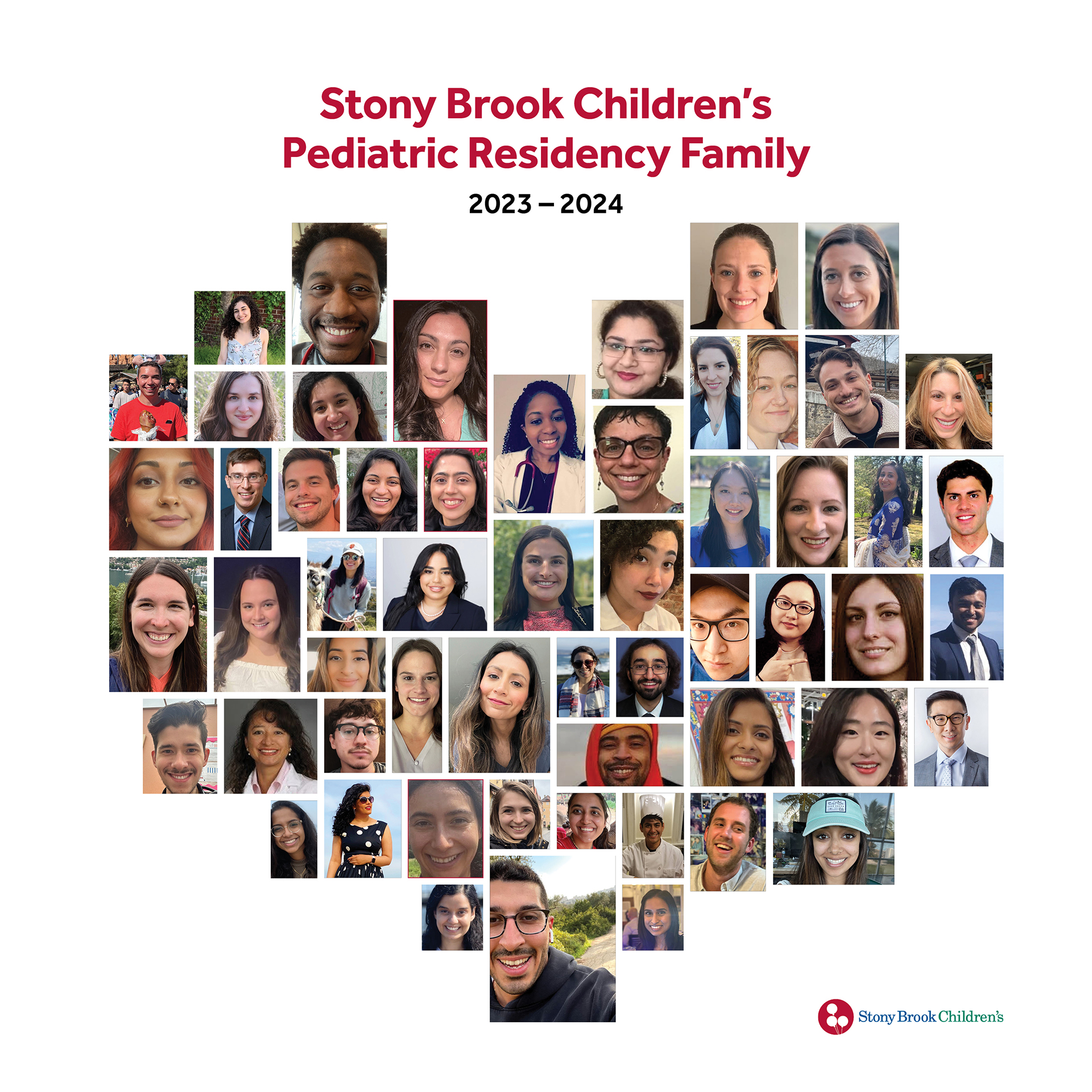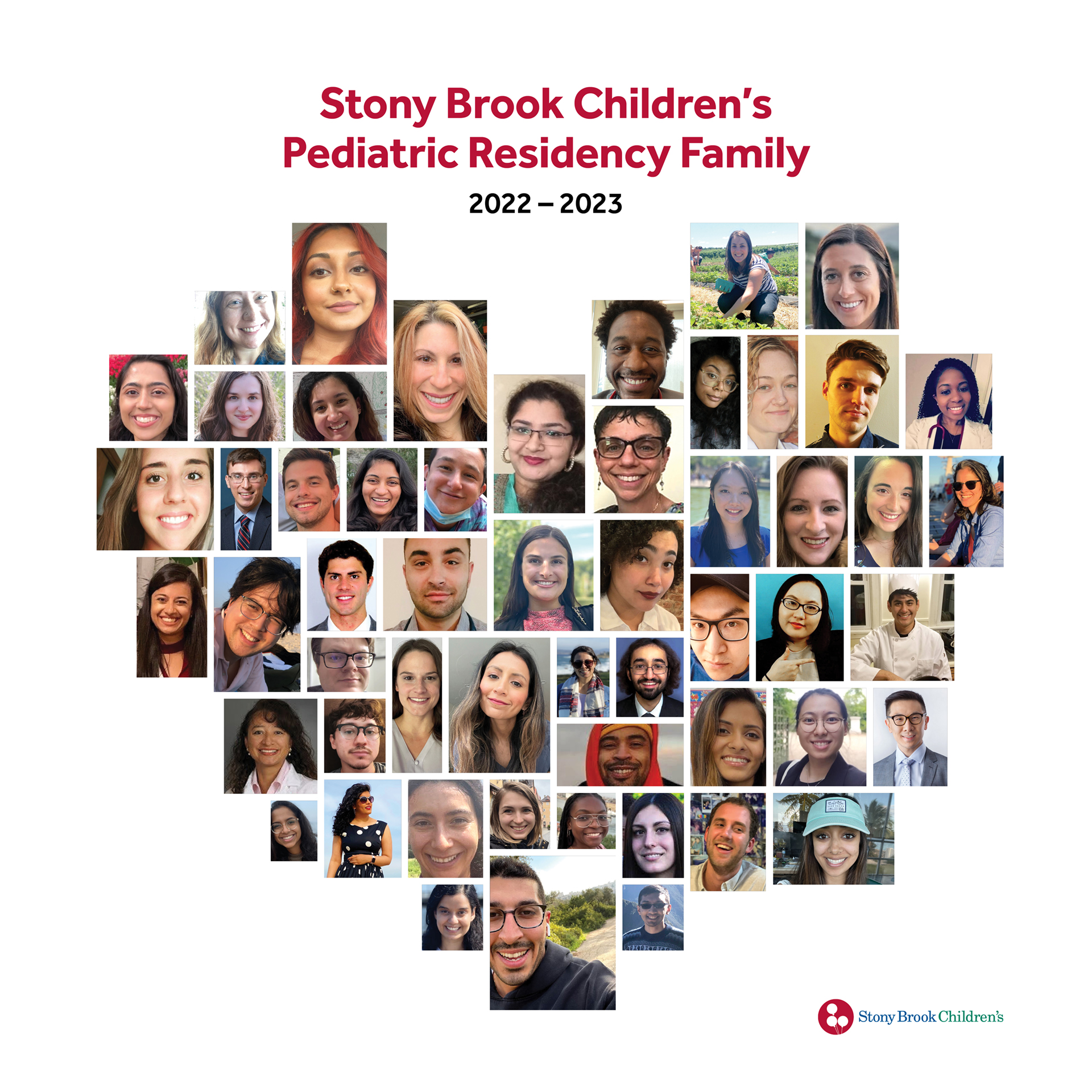Stony Brook Pediatrics Residency is one of the most sought-after programs for aspiring pediatricians. It offers an exceptional opportunity for medical graduates to develop their skills and expertise in pediatric healthcare. Located at Stony Brook Medicine, a renowned academic medical center, the residency program provides a robust curriculum, hands-on experience, and mentorship from leading pediatricians.
Choosing the right residency program is a critical decision for medical students transitioning into their careers. Stony Brook Pediatrics Residency stands out due to its commitment to excellence in education, research, and patient care. This program not only prepares residents for clinical practice but also fosters leadership and innovation in the field of pediatrics.
In this article, we will delve into the details of the Stony Brook Pediatrics Residency program, covering its structure, benefits, application process, and how it aligns with the Your Money or Your Life (YMYL) criteria. Whether you're a prospective resident or someone interested in pediatric healthcare, this guide will provide valuable insights to help you make informed decisions.
Read also:The Fascinating World Of Speed Of Sound Technologies
Table of Contents
- Overview of Stony Brook Pediatrics Residency
- Program Structure and Curriculum
- Benefits of Choosing Stony Brook Pediatrics Residency
- Application Process and Requirements
- Research Opportunities in Pediatrics
- Mentorship and Faculty Support
- Community Care and Outreach Programs
- Career Development and Alumni Success
- Funding and Financial Support
- Conclusion and Call to Action
Overview of Stony Brook Pediatrics Residency
The Stony Brook Pediatrics Residency program is designed to equip future pediatricians with the knowledge and skills necessary to deliver high-quality healthcare to children. As part of Stony Brook Medicine, the program leverages cutting-edge technology and a multidisciplinary approach to provide comprehensive training.
Key Features of the Program
This section highlights the essential features of the Stony Brook Pediatrics Residency:
- A three-year program accredited by the Accreditation Council for Graduate Medical Education (ACGME).
- Access to state-of-the-art facilities and resources.
- Opportunities for residents to engage in clinical research and quality improvement projects.
- A diverse patient population offering exposure to various pediatric conditions.
The program is structured to ensure residents receive a well-rounded education that prepares them for both general pediatric practice and subspecialty training.
Program Structure and Curriculum
The curriculum at Stony Brook Pediatrics Residency is meticulously crafted to meet the educational needs of residents. The program focuses on providing hands-on experience in a variety of clinical settings, including inpatient, outpatient, and emergency care.
Rotations and Training
Residents rotate through several departments, gaining experience in:
- General pediatrics
- Neonatology
- Pediatric critical care
- Pediatric emergency medicine
- Subspecialty clinics
Each rotation is designed to build upon the previous one, allowing residents to progressively develop their skills and confidence in diagnosing and treating pediatric patients.
Read also:Saucony X Jae Tips A Comprehensive Guide To Elevate Your Sneaker Game
Benefits of Choosing Stony Brook Pediatrics Residency
Stony Brook Pediatrics Residency offers numerous advantages that set it apart from other programs. Below are some of the key benefits:
1. Strong Educational Foundation
The program provides a solid foundation in pediatric medicine, ensuring residents are well-prepared for board certification and future practice.
2. Collaborative Learning Environment
Residents benefit from a collaborative atmosphere where teamwork and peer learning are encouraged. This fosters a supportive environment conducive to professional growth.
3. Access to Cutting-Edge Research
Stony Brook Medicine is a leader in pediatric research, offering residents the opportunity to participate in groundbreaking studies and contribute to the advancement of medical knowledge.
Application Process and Requirements
Applying to Stony Brook Pediatrics Residency involves several steps. Prospective residents must submit their applications through the Electronic Residency Application Service (ERAS) and participate in interviews if selected.
Eligibility Criteria
To be eligible for the program, applicants must:
- Hold a medical degree from an accredited institution.
- Be eligible for medical licensure in New York State.
- Submit all required documentation, including transcripts, letters of recommendation, and a personal statement.
Meeting these criteria increases the likelihood of being considered for the program.
Research Opportunities in Pediatrics
Research is an integral part of the Stony Brook Pediatrics Residency program. Residents have access to numerous research opportunities, enabling them to explore their interests and contribute to the field.
Types of Research Projects
Residents can engage in various types of research, including:
- Clinical research
- Basic science research
- Public health research
- Quality improvement projects
These projects allow residents to develop critical thinking and problem-solving skills while advancing pediatric care.
Mentorship and Faculty Support
One of the hallmarks of Stony Brook Pediatrics Residency is its commitment to mentorship. Residents receive guidance and support from experienced faculty members who are dedicated to their success.
Role of Mentors
Mentors play a crucial role in helping residents navigate their training and career development. They provide:
- Personalized career counseling
- Feedback on clinical performance
- Assistance with research projects
This mentorship ensures that residents receive the support they need to achieve their professional goals.
Community Care and Outreach Programs
Stony Brook Pediatrics Residency emphasizes the importance of community care and outreach. Residents participate in programs aimed at improving the health and well-being of children in the surrounding areas.
Outreach Initiatives
Some of the outreach programs include:
- Health screenings in local schools
- Community education workshops
- Partnerships with local organizations to promote child health
These initiatives allow residents to make a positive impact on the community while gaining valuable experience in public health.
Career Development and Alumni Success
The Stony Brook Pediatrics Residency program is committed to supporting residents' career development. Many alumni have gone on to achieve success in various areas of pediatric medicine.
Success Stories
Alumni of the program have pursued careers in:
- Academic medicine
- Clinical practice
- Pediatric subspecialties
- Public health
Their achievements reflect the program's dedication to preparing residents for successful careers in pediatric healthcare.
Funding and Financial Support
Stony Brook Pediatrics Residency provides financial support to help residents focus on their training without undue financial stress. The program offers competitive stipends and benefits.
Financial Assistance
Residents can expect the following financial support:
- Monthly stipends
- Health insurance coverage
- Professional development funds
These benefits ensure that residents can concentrate on their education and training without financial concerns.
Conclusion and Call to Action
In conclusion, Stony Brook Pediatrics Residency is a premier program that offers exceptional training and opportunities for aspiring pediatricians. With its robust curriculum, research opportunities, and mentorship, the program prepares residents for successful careers in pediatric healthcare.
We encourage you to take the next step by exploring the program further. Whether it's applying for the residency, reaching out to current residents, or learning more about the application process, there are many ways to engage with Stony Brook Pediatrics Residency.
We invite you to share this article with others who may find it beneficial and leave your thoughts in the comments section below. For more information on pediatric healthcare and related topics, explore our other articles on the site.



